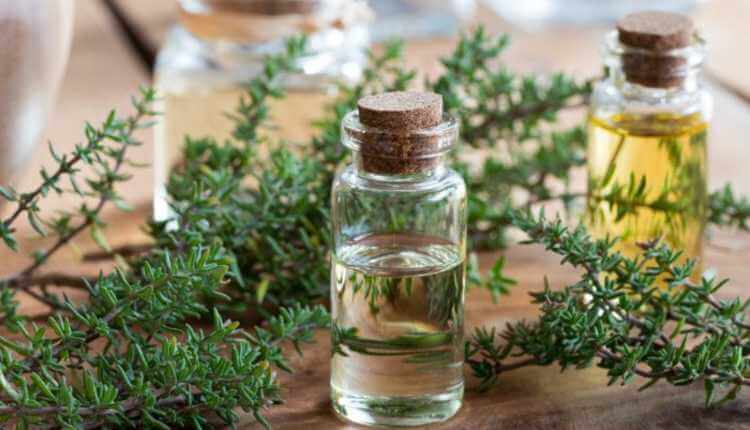India is known for its rich heritage, culture and spices since the ages which have not only brought western countries in India but also its culture and the spices from abroad. One such spice that came from abroad is the thyme which is known as the Ajwani in India. The evidence says that the thyme was originated in the southern Mediterranean and some part of North America.
In this article, we have covered in detail about the thyme in terms of its uses, health benefits, side-effects, nutrition values and other vital pieces of information.
What is Thyme?
Thyme is a herb. Its fragrance is very strong. It is a perennial evergreen herb. It is a species of plant class called the thymus.
What are the health benefits of thyme or Ajwain?

1. Anti-fungal properties
The most important property in thyme is thymol. This organic compound is very useful for the body. According to the study published in Foot Safety, this compound prevents fungal and viral infections as well as protects the body from many serious diseases.
You might also be interested in Health: Daily Habits that Can Help You to Keep Yourself Healthy.
2. Antioxidants
Thyme has also been considered a very good anti-oxidant. According to the Korea Food Research Institute study, the antioxidants found in thyme protect the body from free radicals. Free radicals act to damage cells. On the other hand, consuming thyme helps in preventing oxidative stress in the organs, nervous system, heart, eyes and skin-related diseases, which reduces the risk of serious diseases.
3. Improve Blood Circulation
Iron and other essential elements are found in a good amount in thyme, which works by increasing the formation of red blood cells as well as promoting blood circulation and oxygen in all the organs of the body. 100 grams of fresh thyme contains 17.45mg of iron, which supplies 20% of the iron of the day.
4. Respiratory problems
Thyme is beneficial for removing respiratory problems. This herb protects against bronchitis, chronic asthma, cold, flu etc. Actually, its anti-inflammatory properties reduce the risk of diseases by eliminating inflammation in the respiratory system.
5. Healthy for Heart
This herb is full of antioxidants, minerals and vitamins, which protect the heart. The potassium and magnesium minerals found in it are also important, which support the cardiovascular system as well as keep away the problem of blood pressure.
Also, see The secrets of maintaining good health easily and effectively.
6. Eye Health
Thyme herb can also be used to keep the eyes healthy. Actually, these herbs are a very good source of carotenoids and vitamin A, which also work to prevent vision problems and protect them from macular degeneration and cataract. In this way, thyme herb can be considered very beneficial for the eyes.
7. Immunity
Thyme herb is useful to increase immunity. Vitamin C is found at high levels in it, which boosts immunity by increasing the formation of white blood cells. Vitamin C is also important in the formation of collagen, which works to repair cells, muscles and tissues and make the skin healthy.
8. Tension
Thyme can be used for mental health. It contains Vitamin B6. It affects neurotransmitters found in the brain, which directly affect stress-enhancing hormones. So by adding thyme to your diet regularly, you can reduce the problem of stress to a great extent, the mind will remain relaxed.
9. Eliminate skin related problems
Thyme has anti-bacterial and anti-fungal properties that relieve skin-related irritants. Use of thyme oil helps in reducing the symptoms of eczema.
10. Get rid of sleep problems:
In the European Middle Ages people used it to overcome problems like insomnia. The smell of thyme improves sleep quality.
Also helpful in these problems:
Use of thyme is extremely beneficial in diseases such as bronchitis, cough, sore throat, colic, arthritis, stomach upset, abdominal pain, diarrhoea, bedwetting, a movement disorder in children, intestinal gas, parasitic worm infection, and skin disorder. it happens. It is used to disinfect urine and increase its flow and increase appetite.
Use of thyme is beneficial for swollen tonsils, smelly breath if there is a sore throat or voice.
Thyme oil is also used to kill germs in the mouthwash and liniment, to remove baldness, and to fight bacterial and fungal infections of the ear. Thymol, one of the chemicals in thyme, mixed with chlorhexidine, is used as a dental varnish to prevent tooth decay.
You might also be interested in Spa at Home: How to get a Spa Treatment at Home.
What are the nutrition Values in thyme or Ajwain?

Nutrition Values in thyme or Ajwain (Source: Diet and Fitness Today)
- In 100 grams of thyme
- Calories – 101
- Total fat – 7 g
- Saturated Fat – 5 g
- Polyunsaturated Fat – 5 g
- Monosaturated fat – 1 g
- Cholesterol – 0 mg
- Sodium – 9 mg
- Potassium – 609 mg
- Total Carbohydrate – 24 g
- Dietary Fiber – 14 g
- Protein – 6 g
- Vitamin A – 4,751 IU
- Vitamin C – 160.1 mg
- Calcium – 405 mg
- Iron – 5 mg
- Vitamin D – 0 IU
- Vitamin B6 – 0.3 mg
- Vitamin B12 – 0%
- Magnesium – 160 mg
Uses of Thyme:
Leaves are used in various dishes in their cooking, either green or dried. It is usually added to soups, sauces, meat dishes, and is also used as a flavorful garnish. Tea can also be made with leaves and its oils are also used for the body as well as its decoction can be made to avoid many diseases. Its oil is very beneficial.
In What forms thyme is available in?
- Fresh thyme
- Thyme leaf capsules
- Thyme liquid extract
What are the Side effects of Thyme or ajwain?

- If you are pregnant or breastfeeding. This is because during this time the immunity of the pregnant mother is very weak, in such a situation, you should consult your doctor before taking any kind of medicine.
- If you are already taking other medicines or are taking medicines without a prescription.
- If you are allergic to thyme or other medicines or herbs.
- If you have another type of illness, disorder, or medical condition.
- If you have some kind of allergy, such as from certain types of food, from Dias, preservatives or animals.
- People who are allergic to Oregano may also be allergic to thyme.
- Thyme can slow blood clotting, the concern being that there may be an increased risk of extra bleeding during and after surgery. So stop using time 2 weeks before the scheduled date of surgery
- Do not use the information given here as an alternative to medical advice. Do not use this medicine without the opinion of a doctor or herbalist.
What is the right dose to take thyme?
Consumption of thyme in normal amounts is safe. There is probably no harm in taking it as a medicine for a short time. It can also disturb the digestive system. Usually, thyme oil is safe for the skin but in some people, this oil can cause skin irritation. However, is it safe to take thyme oil as a medicinal dose? There is not much information about this.
Thyme can affect your medical conditions and ongoing medications. So before this question, please consult your herbalist or doctor. Do not use the information given here as an alternative to medical advice.


